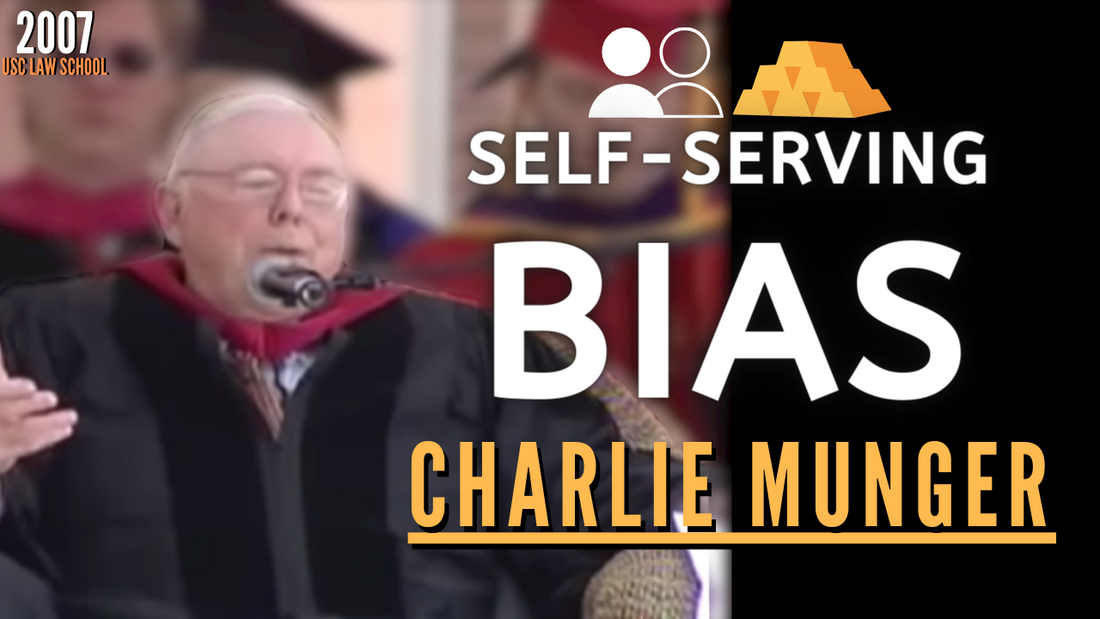
Charlie Munger: "Self-Serving Bias, you want to Get Out of yourself ." | USC 2007【C:C.M Ep.166】
[Transcript]
CHARLIE MUNGER: Another thing, of course, that does one in is the self-serving bias to which we are all subject. You think that your little me is entitled to do what it wants to do and, for instance, why shouldn’t the true little me overspend my income?
Well, there once was a man who became the most famous composer in the world, but he was utterly miserable most of the time and one of the reasons was he always overspent his income. That was Mozart. If Mozart can’t get by with this kind of asinine conduct, I don’t think you should try it.
Generally speaking, envy, resentment, revenge, and self-pity are disastrous modes of thought. Self-pity gets pretty close to paranoia and paranoia is one of the very hardest things to reverse. You do not want to drift into self-pity.
I have a friend who carried a big stack of linen cards about this thick, and when somebody would make a comment that reflected self-pity, he would take out one of the cards, take the top one off the stack and hand it to the person, and the card said, “Your story has touched my heart. Never have I heard of anyone with as many misfortunes as you.”
Well, you can say that’s waggery, but I suggest that every time you find you’re drifting into self-pity — And I don’t care what the cause, your child could be dying of cancer, self-pity is not going to improve the situation — just give yourself one of those cards. It’s a ridiculous way to behave and when you avoid it you get a great advantage over everybody else, almost everybody else, because self-pity is a standard condition and yet you can train yourself out of it.
And, of course, a self-serving bias, you want to get out of yourself: thinking that what’s good for you is good for the wider civilization and rationalizing all these ridiculous conclusions based on the subconscious tendency to serve one’s self. It’s a terribly inaccurate way to think and, of course, you want to drive that out of yourself because you want to be wise, not foolish.
You also have to allow for the self-serving bias of everybody else, because most people are not gonna remove it all that successfully, the only condition being what it is. If you don’t allow for self-serving bias in your conduct, again, you’re a fool.
I watched the brilliant Harvard Law Review-trained general counsel of Salomon lose his career. And what he did was, when the CEO was aware some underling had done something wrong, the general counsel said, “Gee, we don’t have any legal duty to report this, but I think it’s what we should do. It’s our moral duty.”
Of course, the general counsel was totally correct, but, of course, it didn’t work. It was a very unpleasant thing for the CEO to do and he put it off and put it off and, of course, everything eroded into a major scandal and down went the CEO and the general counsel with him.
The correct answer in situations like that was given by Ben Franklin. He said, “If you want to persuade, appeal to interest not to reason.” The self-serving bias is so extreme. If the general counsel said, “Look, this is going to erupt. It’s something that will destroy you, take away your money, take away your status. It’s a perfect disaster.” It would have worked! You want to appeal to interest. You want to do it of lofty motives, but you should not avoid appealing to interest.
(Source: https://youtu.be/jY1eNlL6NKs)
[YAPSS Takeaway]
